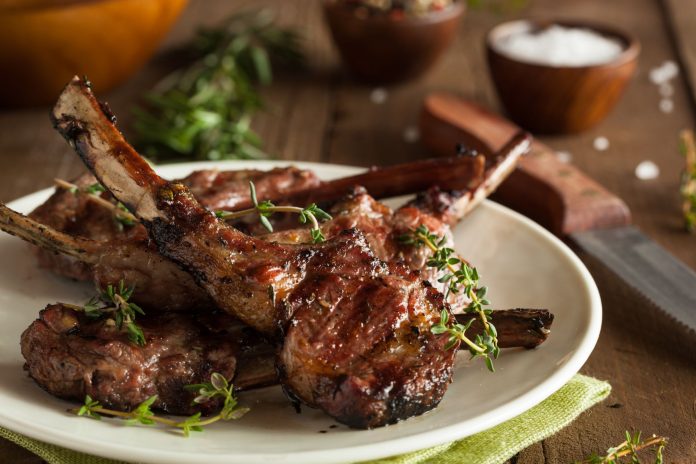Sunshine Coast residents are helping to improve the quality of Australian lamb and beef at tasting sessions, where they are dining out for free and helping local groups and charities in the process.
Market research company Tastepoint started operating in Queensland in October and they’ve attracted a throng of participants to almost 50 sittings.
They hold regular events for groups of 60 people, who taste cuts of meat before filling out a survey.
The sessions are held on behalf of industry leaders like Meat and Livestock of Australia, CSIRO, the NSW Department of Primary Industry and universities including Murdoch University, University of New England and Charles Sturt University.
The research determines what factors influence quality of meat, including comparing grass-fed to grain-fed livestock.
Tastepoint business manager Jeff Beehler said the tasting sessions were designed to “improve the outcome for the consumer”.

Feedback traditionally came from a professional panel.
“But about 10 years ago, they realised that having the same people taste probably wasn’t in the best interests,” Mr Beehler said.
Now it’s essentially open to any group of 60.
Each time a group takes part, Tastepoint provides $1000 to them for their fundraising drive.
About 240 people have taken part locally.
“We have a lot of clients on the Sunshine Coast,” Mr Beehler said.
“We just did the Caloundra Evening View Club and they raised money for The Smith Family, which helps get youngsters in school.
“We’ve also done the Pelican Waters Bowls Club, who raised money for their social club.”
They’re set to host a tasting session with The Caloundra Rise Retirement Estate for a second time, in April, while the Caloundra Tri Club is also booked in.
They’re in talks with Caloundra Reading Club, Twin Waters View Club, Caloundra RSL Women’s Auxiliary, Palm Lake Resort and others.
“We do a lot of rotary clubs (in Queensland), who raise money for the Christmas baskets and charities,” he said.
“We do sport clubs too. We just did a netball club, which is sending rep players to Cairns for a tournament, and they raised money for uniforms.
“We’ve also had some individuals who got 60 people together, to help them raise money to lead treks for underprivileged children.
“A lot of churches are also involved.”

Mr Beehler said they did four to five tasting sessions a week in Queensland.
The data collection follows strict protocols, similar to events in Europe, South Africa and the United States.
Organisations are restricted to taking part three times per year.
The pieces of meat are cooked equally – essentially between medium to medium well done – with a small amount of oil and no seasoning, on a Silex cooker.
The pieces are the size of a 50 cent coin but 4cm deep.
Help keep independent and fair Sunshine Coast news coming by subscribing to our free daily news feed. All it requires is your name and email. See SUBSCRIBE at the top of this article.
“People can’t sit there and go ‘oh that’s a nice piece’ (and influence others) because there’s only a few people in the room tasting the same thing,” Mr Beehler said
“And we take care to make sure they don’t sit next to each other.”
Mr Beehler, a statistician and mathematician who previously worked on the financial floors of Chicago, said the survey included various questions.
Consumers provide details regarding their age, postcode, gender, education, size of household, eating habits and culture.
Participants taste seven pieces of meat and rate each of them on a scale of 1-100, regarding tenderness, juiciness, liking of flavour, overall liking and how it compares to what the consumer usually eats.
Mr Beehler said attendees take the testing seriously.
“I’ll see people rate one piece highly across the board in all categories, but the next piece will be poor.”
“People aren’t just showing up to eat some lamb and get $1000.”
They also have strict procedures, in line with COVID-19 regulations, including spaced seating and providing their own tables.
Mr Beehler helps collect the data but is not privy to all analysis.
He did say that one finding involved stock being shipped from Tasmania to Victoria.
Analysis indicated the stock which travelled on larger boats were more settled and were ultimately better tasting.
The owners of Tastepoint, John and Janine Chalmers, have contributed more than $1.2 million to various organisations.
Tastepoint was traditionally utilised in Victoria but has extended its reach to Queensland.
See more, including how to get involved, at www.tastepoint.org/





